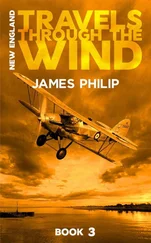Bernhard - Travels Through North America, During the Years 1825 and 1826. v. 1-2
Здесь есть возможность читать онлайн «Bernhard - Travels Through North America, During the Years 1825 and 1826. v. 1-2» — ознакомительный отрывок электронной книги совершенно бесплатно, а после прочтения отрывка купить полную версию. В некоторых случаях можно слушать аудио, скачать через торрент в формате fb2 и присутствует краткое содержание. Жанр: foreign_antique, foreign_prose, Путешествия и география, на английском языке. Описание произведения, (предисловие) а так же отзывы посетителей доступны на портале библиотеки ЛибКат.
- Название:Travels Through North America, During the Years 1825 and 1826. v. 1-2
- Автор:
- Жанр:
- Год:неизвестен
- ISBN:нет данных
- Рейтинг книги:4 / 5. Голосов: 1
-
Избранное:Добавить в избранное
- Отзывы:
-
Ваша оценка:
- 80
- 1
- 2
- 3
- 4
- 5
Travels Through North America, During the Years 1825 and 1826. v. 1-2: краткое содержание, описание и аннотация
Предлагаем к чтению аннотацию, описание, краткое содержание или предисловие (зависит от того, что написал сам автор книги «Travels Through North America, During the Years 1825 and 1826. v. 1-2»). Если вы не нашли необходимую информацию о книге — напишите в комментариях, мы постараемся отыскать её.
Travels Through North America, During the Years 1825 and 1826. v. 1-2 — читать онлайн ознакомительный отрывок
Ниже представлен текст книги, разбитый по страницам. Система сохранения места последней прочитанной страницы, позволяет с удобством читать онлайн бесплатно книгу «Travels Through North America, During the Years 1825 and 1826. v. 1-2», без необходимости каждый раз заново искать на чём Вы остановились. Поставьте закладку, и сможете в любой момент перейти на страницу, на которой закончили чтение.
Интервал:
Закладка:
On the 30th of April with a fresh wind we made the eastern point of the Isle of Wight, where we hoisted a flag, and fired a gun for a pilot, who did not come on board immediately. We sailed cautiously onwards, came in sight of Portsmouth, and neared St. Helen’s point, Isle of Wight. The pilot then came on board, and steered us into Spithead road, off Portsmouth. This town, in which I was so much pleased two years before, has a very handsome appearance. Several ships of the line were lying in the harbour, among which was the Victory , on board of which Lord Nelson was killed. When we saw the admiral’s flag floating from her mainmast head, we saluted her with seventeen guns, which she returned with thirteen. We anchored in the road where we found two English corvettes, an East India company’s ship, and a Portuguese frigate, which had brought the Portuguese ambassador, the Marquis Palmella, to England.
CHAPTER II
As the corvette was to remain, for the instruction of the midshipmen, until all the naval establishments had been accurately examined, I resolved to go on shore and travel from Portsmouth to Plymouth and Falmouth, and then rejoin the corvette. On the 1st of May I went in the boat, accompanied by Captain Ryk and Lieutenant Lejeune, to Portsmouth. The sea ran very high, and the eight oarsmen made very little way against the swell. As we entered the harbour where the waves were exceedingly high, we turned so quickly that two seas struck our boat in the side, and made us more than once fear that she would be foundered. Nevertheless we arrived safely, though thoroughly wet.
I remained in Portsmouth three days, and as its situation and relations were already known to me, I spent the time in reading, writing, paying and receiving visits, and in strolling about in interesting society. For a similar reason I allowed myself to make desultory observations.
According to the navy list, there are at Portsmouth sixteen ships in actual service, mounting five hundred and eighteen guns; sixty-five dismantled, with four thousand one hundred and forty-three guns, and eighteen building, which are to carry seven hundred and fifty-six guns; making a total of five thousand four hundred and seventeen guns.
Some of the lowest class of people were masquerading in honour of the 1st of May. Most of them were dressed as Jack-puddings; others were ornamented with bladders: they marched through the streets to the sound of music, stopped and danced before some of the houses, and collected money. They also had a boxing match between two boys, which was conducted as a regular combat. As soon as one boy was down, his antagonist ceased to strike, and his second helped him up. One, however, did strike a blow while the other was down, whereupon several of the bystanders rushed upon the offender, held him fast, and gave him so many punches in the ribs that he was completely discomfited; and this terminated the fray. In the harbour about one hundred and fifty men were shipped as recruits for the 89th regiment, stationed in the East Indies. They came from the depôt at the Isle of Wight, and appeared to be very weak and miserable.
The Marquis Palmella, who resided in the same hotel with me, set out on the 3d of May with his family, a wife, eight children, and a numerous suite, for London. I paid him a visit, and was introduced to his lady, a very beautiful woman. The marquis, who is very generally esteemed, suffered considerably during the last Portuguese counter-revolution, and was kept prisoner for several days. During his stay at this place he has constantly had two honorary sentries, and an hour before his departure, a company of fifty marines, with three officers, and the band in full uniform, marched in front of the hotel, and remained as a guard of honour until he left Portsmouth. It was with real pleasure that I remarked the excellent condition of this corps.
The royal marines, whose barracks I visited, and saw the men defile, have an exceedingly fine appearance, and are highly esteemed. The officers are promoted according to seniority; but since the peace, the corps has been much reduced, and the officers are old in their grades. The officers also are mostly persons without influence, and enter the royal marines because unable to purchase rank in the army. The barracks for the soldiers did not altogether please me: they are better regulated and kept more cleanly in the Netherlands. It is a good regulation that the bedsteads are iron, and that every man lies alone; but it is very bad on the other hand, that they cook in the same room.
I visited, in company with Captain Ryk, the Ganges, a ship of the line of eighty-four guns, built a few years since by Indian workmen, entirely of Teak-wood. This hard and heavy timber is not only very lasting, but has also the great excellence of not cracking in a warm climate. We were received on board the ship with great attention, in the absence of Captain Campbell, by Lieutenant Wright, who did the honours in a very friendly manner. I cannot sufficiently admire the neatness observed in this ship. They have an excellent mode of taking care of the rings, bolts, weapons, and other iron, brass, and copper utensils, on board of English ships of war. The forepart of the gun-deck is an extraordinary apartment, the iron implements are varnished, and the others polished and arranged along the whitewashed sides, so as to form figures and inscriptions. When strangers visit the ship a sort of chandelier is lighted, which produces a very beautiful effect. When we left the ship, Lieutenant Wright had the politeness to take us in his barge to the inner harbour, where the ships are laid up in ordinary. As we left the Ganges, she saluted us with nineteen guns.
Ships in commission are painted black and white; when they go into ordinary this paint is scraped off, and they are then painted brownish yellow; if not again to be employed in active service they are painted entirely black. We went on board of the Nelson , of one hundred and twenty guns, in the harbour. She is a new ship, but lay in ordinary, having been already affected with the destructive dry-rot . The injured planks had been removed, and at present she is entirely sound. The Nelson, Ganges, and all the recently built ships of the line have round sterns. All of them have the wood work necessary for their equipment, as for gun-carriages, &c. on board. In order to preserve this and the deck from the influence of the weather, a large roof is built over them. From the Nelson we went on board the royal yacht, the Royal George , which I had already seen, but which I willingly examined once more, on account of her elegant construction and great luxury. The magnificence of the royal apartments, and those for the suite, are very strongly contrasted with the birth-deck for the crew, which is both dark and confined. We remarked here a patent iron camboose, which cooked all the food by means of steam.
Having purchased the necessary provisions, especially Gamble’s preserved meats, which keep fresh for a year, I went on the 4th of May, at 4 P. M. on board the steam ship, Sir Francis Drake, to go to Plymouth, distant one hundred and fifty miles. The engine is of seventy horse-power. The ship was not very comfortably arranged; the main cabin was so near the boiler that the heat was intolerable. Our passengers amounted to thirty persons, only eight of whom were cabin passengers. About five o’clock a gun was fired as a signal for sailing, and we stood out to sea. Spithead road with the shipping lay to the left, and our course was between the land and the Isle of Wight. Cowes with its beautiful gardens presented an agreeable sight, about a mile to the westward of which stands a castle called Egypt. It began to grow dark. We saw on the right hand the extremely bright lights of Hurst-castle , and on the left the light-house of the Needles, on the western extremity of the Isle of Wight, which I visited two years ago. The white rocks of the Needles were visible in the dark, and from the effects of frequent storms have an entirely peculiar appearance. As we passed this dangerous place, the wind increased, and the motion of the little ship, with the continual jarring of the steam-engine, became exceedingly disagreeable. As the birth allotted to me was too short, I was obliged to place my mattrass upon the floor. The heat and strokes of the adjacent steam-engine, the coughing of a catarrhous Irishman, and the squalling of a child in the next cabin, long prevented me from sleeping. It was not until near morning that I began to slumber, but was soon waked again by the insupportable heat. I sought refuge upon deck, where nearly all the company, without excepting the captain, were unwell.
Читать дальшеИнтервал:
Закладка:
Похожие книги на «Travels Through North America, During the Years 1825 and 1826. v. 1-2»
Представляем Вашему вниманию похожие книги на «Travels Through North America, During the Years 1825 and 1826. v. 1-2» списком для выбора. Мы отобрали схожую по названию и смыслу литературу в надежде предоставить читателям больше вариантов отыскать новые, интересные, ещё непрочитанные произведения.
Обсуждение, отзывы о книге «Travels Through North America, During the Years 1825 and 1826. v. 1-2» и просто собственные мнения читателей. Оставьте ваши комментарии, напишите, что Вы думаете о произведении, его смысле или главных героях. Укажите что конкретно понравилось, а что нет, и почему Вы так считаете.












